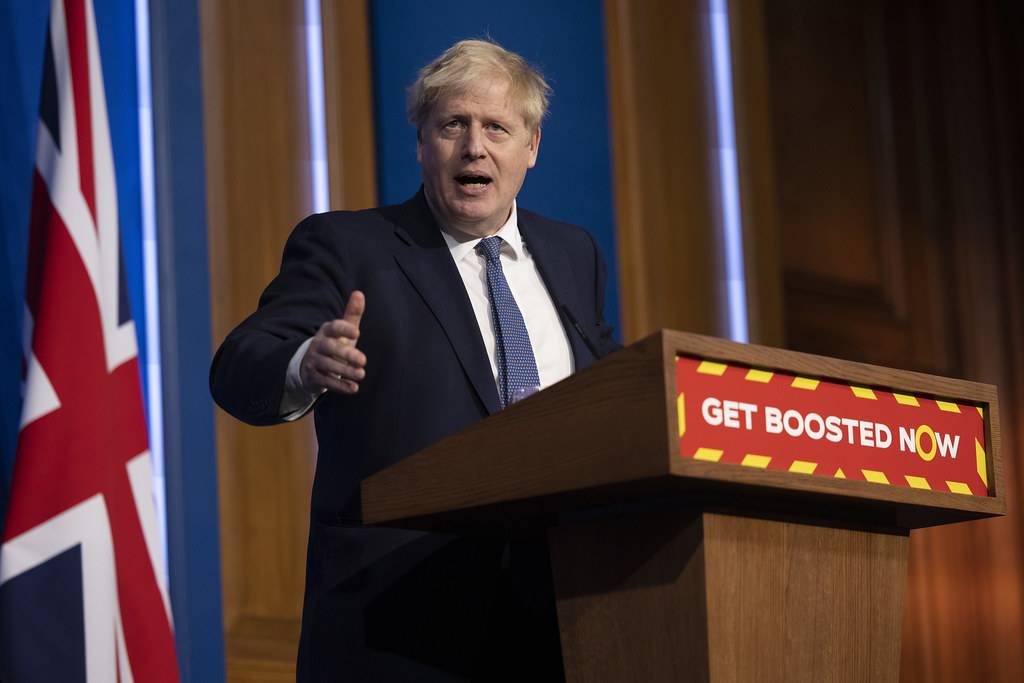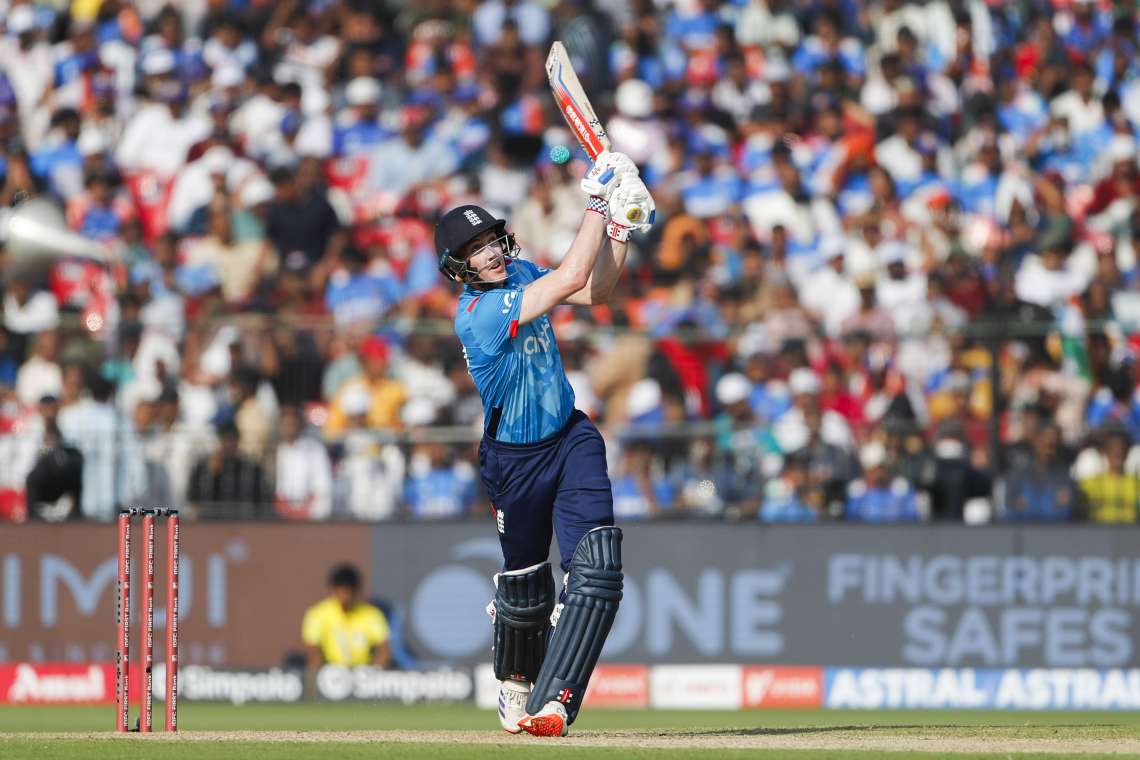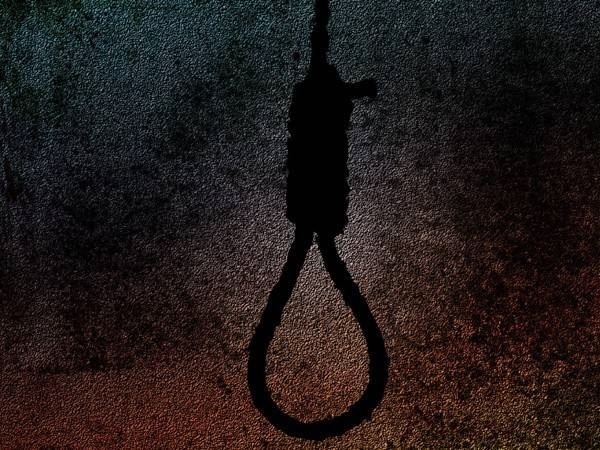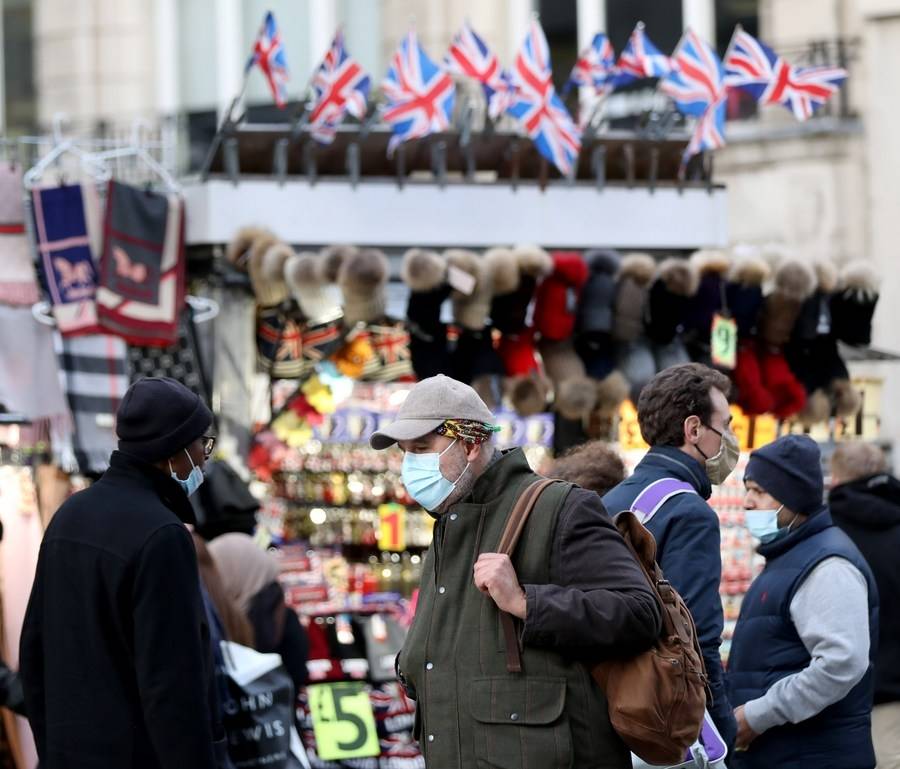Johnson, who only has responsibility for health policy in England, reinstated the curbs last month to cope with what he called a “tidal wave” of expected infections from Omicron…reports Asian Lite News
The government announced Wednesday that restrictions reimposed in England last month to fight the surge in Omicron coronavirus cases would be lifted, citing data that showed infections had peaked.
Guidance advising people to work from home was lifted immediately, while from the middle of next week they will no longer have to wear masks in any setting or use a so-called Covid pass to enter venues such as nightclubs.
Prime Minister Boris Johnson, who is fighting for his political future amid a scandal over his staff partying during past lockdowns, told MPs the country’s “extraordinary booster campaign” had made the change possible.
He noted more than 36 million booster jabs had been delivered, with over 90 percent of over-60s now given a third dose, while record case rates had dropped for several weeks.
“Our scientists believe it is likely that the Omicron wave has now peaked nationally,” he added, while cautioning “the pandemic is not over”.
“I encourage everyone across the country to continue with all the cautious behaviours that we know help to keep each everybody safe,” Johnson said.
Some have claimed relaxing the rules is driven by the embattled leader wanting to please critics angry at the revelations that he and his staff broke Covid lockdown rules by holding numerous parties at Downing Street.
Johnson, who only has responsibility for health policy in England, reinstated the curbs last month to cope with what he called a “tidal wave” of expected infections from Omicron.
But facing restive Tory backbenchers, the prime minister rebuffed calls by some scientists to impose stricter measures, and allowed socialising and sporting events to continue unimpeded.
The devolved governments of Scotland, Wales and Northern Ireland imposed stricter curbs, banning large crowds at sports fixtures.
Within weeks, Britain’s daily caseload for Covid topped a record 200,000 infections in early January.
That placed significant pressure on the state-run National Health Service nationwide and spiked the country’s Covid death toll, which is now nearing 153,000.
However, with increasing evidence Omicron results in less severe illness and around 15 million boosters administered since the additional rules were implemented, hospitalisations and deaths have remained well below previous peaks.
Meanwhile, infections have dropped steadily in 2022, with around 108,000 new cases announced Wednesday.
Data from the Office of National Statistics — seen as more accurate as it randomly samples the population — showed weekly cases had dropped by around a fifth.
“The steps that we’ve announced today represent a major milestone,” Health Secretary Sajid Javid said at a Downing Street news conference later Wednesday.
“But it’s not the end of the road and we shouldn’t see this as the finish line,” he added.
Aruging “we must learn to live with Covid” in a similar way to seasonal flu, Javid said the government would be setting out a long-term plan for living with coronavirus within months.
That could eventually include ending mandatory self-isolation for those who have tested positive for Covid-19, he noted.
“It’s reasonable to think just as we’re living with flu, for example, we don’t require people to legally self-isolate but to remain cautious,” Javid added.
Devolved leaders in Edinburgh and Wales have also said they will ease the stronger rules reimposed there, with sporting event limits lifted in time for the Six Nations rugby tournament starting next month.
Scottish First Minister Nicola Sturgeon announced Tuesday she would ease other restrictions, allowing nightclubs to reopen and no longer requiring table service in bars.
Guidance asking people to stick to a three household limit on indoor gatherings will also be lifted, she outlined.
The Welsh government has said a decline in Covid cases in intensive care means it will scale down its alert level from two to zero in coming weeks.
ALSO READ-British Sikhs laud Modi govt














